Scientists Discover a New Signaling Pathway and Design a Novel Drug for Liver Fibrosis
Health & Behavior
Five engineering graduate students from the University of California, San Diego have been named 2017 Siebel Scholars. The Siebel Scholars program recognizes exceptional students at the world’s leading graduate schools of business, computer science, and bioengineering and provides them with a financial award for their final year of studies.
“The Class of 2017 represents the best and brightest from around the globe and it’s my great pleasure to welcome them into this ever-growing, lifelong community,” said Thomas M. Siebel, Chairman of the Siebel Scholars Foundation.
The Siebel Scholars program was established by the Siebel Foundation in 2000 through grants to 16 universities in the United States, China, France, Italy, and Japan. Each year, top graduate students from 27 partner programs are honored as Siebel Scholars and receive a $35,000 award for their final year of studies.
Three of the five UC San Diego Siebel Scholars for 2017 are affiliated with the Department of Bioengineering at the UC San Diego Jacobs School of Engineering, which is first in the nation for biomedical engineering, according to the 2010 National Research Council (NRC) rankings. The two remaining Siebel Scholars are affilated with the Jacobs School's Department of NanoEngineering and the UC San Diego Materials Science and Engineering Program.
These students are part of a growing group of faculty, students and researchers within the UC San Diego Jacobs School of Engineering who are working with interdisciplinary partners to institute meaningful change through engineering.
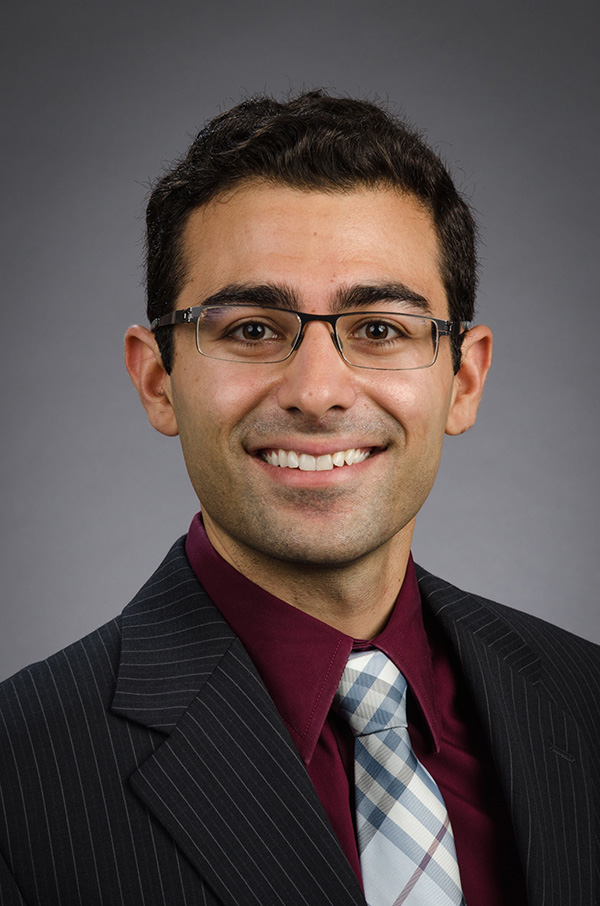
Armen A. Gharibans
Armen A. Gharibans is a Ph.D. candidate in the Department of Bioengineering who conducts research in Professor Todd Coleman's laboratory. His research interests include modeling and statistical signal processing of biological signals with a focus in gastroenterology. He has developed and published innovative techniques for noninvasive gastrointestinal electrophysiology monitoring. His work has led to several studies with clinical collaborators to monitor gastro-intestinal motility in a wide range of patients, from premature babies to the elderly. His work addresses a large unmet need in gastroenterology, where routine investigations are invasive and often fail to identify abnormalities that readily explain symptoms. The methodology that Gharibans is developing has the potential to change the diagnosis of GI disorders as well as inspire new therapies. He received his bachelor’s degree in mechanical engineering from UC San Diego and his master’s, also in mechanical engineering, from the University of Illinois, Urbana-Champaign.
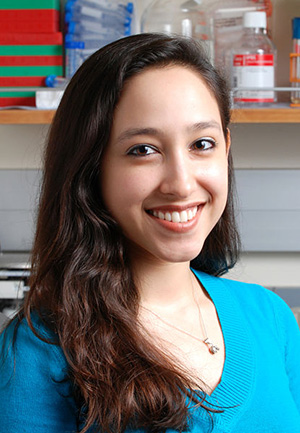
Gabriela Guzman
Gabriela Guzman is currently a Ph.D. candidate in the Department of Bioengineering at UC San Diego, working in the lab of Professor Bernhard Palsson. Her research focuses on utilizing genome-scale models of metabolism and adaptive laboratory evolution to discover “underground” metabolic activities in E. coli. Underground metabolism describes reactions occurring inside a cell that can’t be detected using conventional experimental methods—these reactions are believed to play an important role in evolution. Her work to better understand underground metabolism is useful for engineering targeted antibiotics and large scales of bacterial strains. Her thesis work has been published in the journal Proceedings of the National Academy of Sciences. Guzman has made international collaborations with laboratories in Russia, Denmark and Hungary and has mentored undergraduate students from the Brazil Scientific Mobility Program. After graduation, Guzman plans to continue research on the fundamental biology of evolutionary mechanisms by applying systems biology models and sequencing techniques.
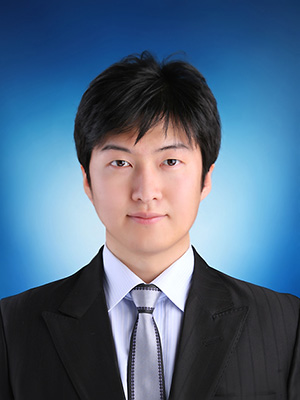
Jae-Young Jung
Jae-Young “Jerry” Jung is a Ph.D. candidate in Materials Science and Engineering Program at UC San Diego in the research group of Professor Joanna McKittrick, where he investigates a wide range of topics. He is working to learn more about impact-resistant biological materials by studying the woodpecker’s head and bone structure. He also uses freeze casting and 3D printing to develop a bioinspired biodegradable ceramic composite scaffold, which could be used for medical implants. He also is an expert in the multi-scale 3D imaging of biological materials and in biomechanical analysis. He received his bachelor’s and master’s in chemical engineering from Dankook University in South Korea. He worked at U&i Corporation and the Korea Institute of Science and Technology (KIST) on development of biomedical devices.
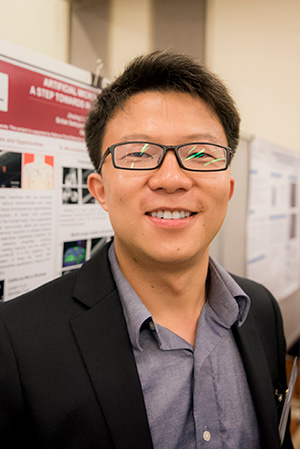
Jinxing Li
Jinxing Li is currently a Ph.D. candidate in the Department of NanoEngineering at UC San Diego. As a member of Professor Joseph Wang’s nanobioelectronics lab, Li collaborates with medical researchers to develop micro- and nanorobots that could be used to deliver medicine inside the body, neutralize biological and chemical agents, and perform nanoscale surgery. His research has led to the first microromotors that can function in vivo, magnetic nanofish that can be remotely actuated to swim in blood, and microrobots for high-resolution bioimaging. Li received his master’s degree in electrical engineering from Fudan University in Shanghai. He has published over 30 peer-reviewed papers, more than half of which are co-authored with his undergraduate and high school student mentees. Li has received the Graduate Student Award by the Materials Research Society, and the Dan David Prize Scholarship in nanoscience from Israel Tel Aviv University. He also received the 2015 Rudee Best Poster Award at the UC San Diego Jacobs School of Engineering Research Expo and the 2016 UC San Diego Interdisciplinary Research Award. Outside the lab, Li enjoys surfing, hiking, and soccer. He plans to continue developing robust and precise nanotechnology tools that can be used to address health issues.
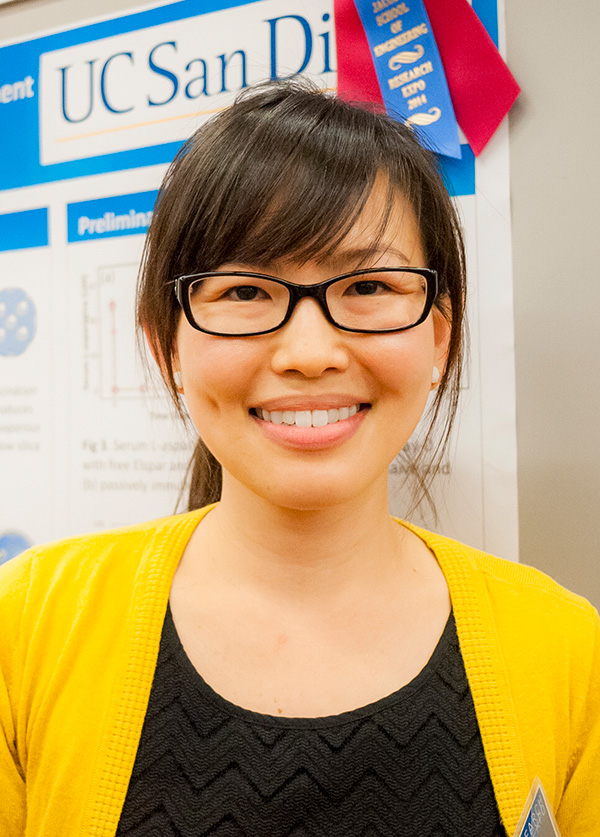
Ya-San Yeh
Ya-San Yeh is a sixth year doctoral candidate in the Department of Bioengineering at UC San Diego under the advisement of Professor Sadik Esener. Her research focuses on engineering biocompatible silica nanoparticles for cancer treatment. These nanoparticles house enzymes that can essentially starve cancer cells by depleting the amino acids that feed them. The nanoparticles hide the enzymes, which are taken from foreign organisms such as E. coli, from the body’s immune system so they can work more effectively in the body. Yeh completed her undergraduate degree in chemical engineering at the University of Texas at Austin. As a UC San Diego graduate student, she was inducted as a Jacobs Fellow, received the Best Poster Award in Bioengineering and the Rudee Outstanding Poster Award at the 2014 Jacobs School of Engineering Research Expo, and received a Best Poster Award at the National Cancer Institute Alliance for Nanotechnology in Cancer Meeting. She has published three peer-reviewed papers in the journals Small, Blood and Nano Letters. Yeh plans to pursue a faculty position and lead a research team in early cancer diagnostics and cancer drug delivery, with the ultimate goal of translating her research from the bench to the clinic. She also plans to continue promoting STEM to high school girls and students from underrepresented minority groups.
Keep up with all the latest from UC San Diego. Subscribe to the newsletter today.